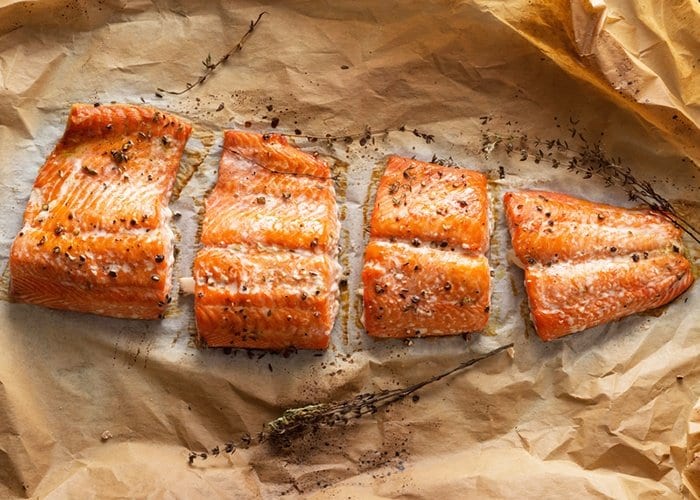Clean 21: 21 Day Detox
Our Signature 21-Day Full-Body Reset
Questions? Ask about this product
Free Shipping On Orders Over $50
Complementary products


Here at Clean, we believe a variety of diets can work well, as we are all different and have different dietary needs. The aim of the tool-kit of our 21-Day Clean Program is a way to find out what works best for your body. Some bodies do very well with a largely vegan or vegetarian diet. Other people do better adding animal protein and cutting a lot of grains, or any number of blends of these diets. We highly recommend going the 21 days (or even 42, two back-to-back cleanses) to figure out what makes you feel good!
When you eat animal protein, whether it’s red meat, fowl, or seafood, it’s important to be careful about quality. We don’t all have a million dollars to get organic everything but we can definitely focus our organic dollars in the right place.
Meats, and animal foods in general, should be highest on the list to buy organic. Why? Because animals eat plants, and toxins from plants/animal feed accumulate in their flesh, which we then eat. Not to mention that most conventional meats have added hormones, antibiotics, and other crazy stuff just so they can be fattened up really quickly and killed without them dying from infection due to toxins and close quarters.
While there isn’t a huge amount of regulation behind terms like “free-range”, “cage-free”, etc, getting the best quality meats out there is key. You may even want to develop a relationship with a local farmer who raises their meat animals in a safe and humane way. We like to hit up the local farmer’s market in the summer and stock up on grass-fed beef and other items to store in the freezer for the year.
If you can’t cozy up with a farmer, take a look at your meat packaging for the following labels:
This is a great question. Typically with my private clients, I recommend 20g-30g of protein with each meal. Not all of your meals need to have animal protein, and I believe there’s a lot of good that comes from a couple of meat-free meals each week.
I would also recommend eating a variety of animal protein sources for better nutrition. For example, eating chicken, turkey, beef and fish and maybe some other more exotic meats like bison or venison during the week will provide a well-rounded nutrition profile for good health and balanced hormones.
According to a study on women eating red meat (more on that below) the sweet spot for weekly red meat (i.e.: beef) consumption is 3-4 palm-sized servings, but not to go above 70g daily.
Here are 3 good reasons to incorporate animal protein into your diet:
Animal products contain the mineral iron, with organ meats (like liver) and red meats (like beef) being higher than chicken and seafood. The type of iron these foods contain is known as heme-iron, and is generally much better absorbed than non-heme iron, found mostly in plant foods like spinach.
Iron is essential for good health and balanced hormones. For example, iron is part of energy creation in the body as it helps build new red blood cells, and low iron levels will often leave us feeling exhausted with low stamina.
Additionally, women often have a harder time keeping their iron levels up to par as we bleed monthly for our menstrual cycles, and with that blood goes iron. Low levels of iron are also implicated in hypothyroidism, a very common hormonal issue among women. Hypothyroidism (and other causes) can contribute to heavy menstrual flow, creating a loss of even more iron and continuing the vicious cycle.
In a study of about 1,000 women, eating red meat specifically showed great benefits for mental health. Deakin university found that eating 3-4 palm-sized servings of red meat each week was protective against mental health issues such as depression and anxiety.
They also found that eating 70g or more red meat daily had the opposite effect, as did not eating enough red meat, and sticking to mostly chicken and fish.
While the mechanisms behind this benefit weren’t studied, the researchers believe it might have something to do with the high omega-3 levels in grass-fed beef and other nutrients. For example, beef is very high in zinc, a mineral we need desperately to keep our mood elevated.
Animal products are foods concentrated in proteins. All proteins are made up of ‘building blocks’ called amino acids, and there are a variety of amino acids we need for good health. Some of these amino acids are even considered essential because we aren’t able to make them in our bodies from other sources.
A couple of amino acids that can’t be gotten from plant foods include creatine and carnosine. Creatine helps with energy creation in the body, and carnosine functions as an antioxidant and protects against degenerative processes in the body.
Protein is required to form muscle, create hormones and other compounds in the body, and without them, things like hormonal imbalances, and lack of strength and stamina can result. Even our hair, skin and nails suffer when we don’t get enough good quality protein.
Besides proteins, animal meats generally have good quality fats we need for health. Like proteins, fats are used in the creation of hormones- specifically steroid hormones like estrogen, testosterone, progesterone and cortisol. It’s important to note that poor quality meats will have poor quality fats, so the better the meat you buy, the better it will be for your health.
As I mentioned in the previous section on mental health, good quality meat (especially beef) contains high levels of anti-inflammatory fats like omega-3s (EPA and DHA) as well as monounsaturated fats, known to be health protective and also found in things like olive oil.
Written by Robyn Srigley
If you like this article, you might also be interested in Gluten-Free Pancakes with Collagen Benefits